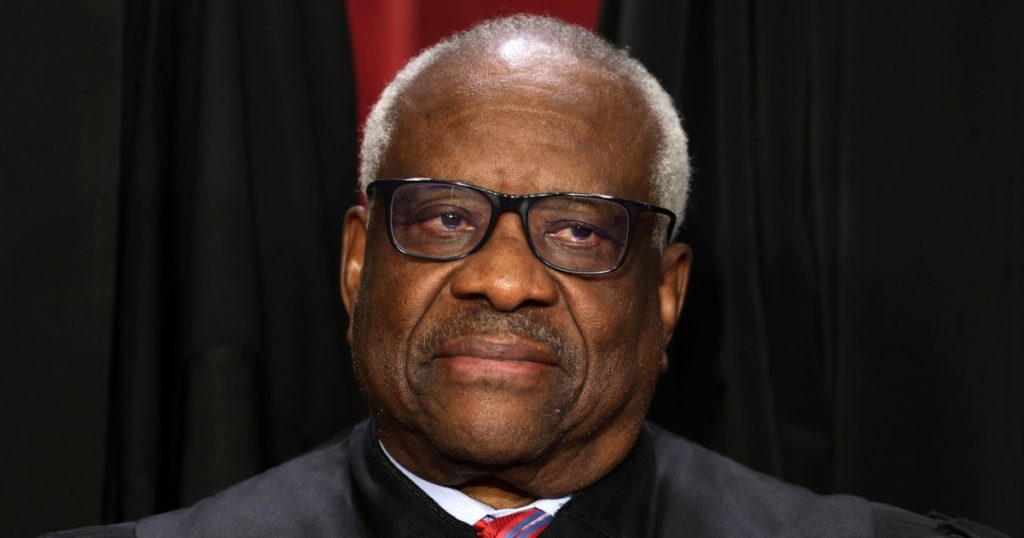Supreme Court Justice Clarence Thomas has not recused himself from recent Jan. 6-related appeals, despite the support of his wife for Donald Trump’s efforts to undermine the 2020 presidential election. During oral arguments in a case involving the obstruction law used against Jan. 6 rioters, Thomas appeared to downplay the severity of the insurrection by questioning whether the government had applied the law to other protests in the past. The Solicitor General admitted she was not aware of similar circumstances prior to Jan. 6, indicating the unique nature of the events that day.
The outcome of the appeal in the case of alleged Capitol rioter Joseph Fischer could have far-reaching implications for other Jan. 6 cases prosecuted using the obstruction law. Fischer, who has pleaded not guilty, has yet to stand trial. The obstruction law also appears in two of Trump’s four counts in his federal election interference indictment, making the decision in Fischer’s case crucial for both the former president and special counsel Jack Smith. The Supreme Court is expected to issue a ruling in Fischer’s case by late June, which could impact the direction of Trump’s pending immunity appeal scheduled to be heard on April 25.
Despite his wife’s support for Trump’s election interference efforts, Justice Thomas has not recused himself from the upcoming hearing on Trump’s immunity appeal. It remains to be seen whether Thomas will question the government lawyer in that case about the unprecedented nature of the prosecution against the former president, as opposed to focusing on the alleged actions that led to the charges. Both Trump and Smith are eagerly anticipating the outcome of the Supreme Court’s decision in Fischer’s case, as it could have significant implications for their own legal proceedings and potential defenses.
The use of the obstruction law in Jan. 6 cases has been unique due to the specific circumstances surrounding the Capitol riot. Thomas’s questioning during oral arguments suggested a reluctance to acknowledge the severity of the insurrection and the unprecedented actions of the rioters. The appeal in Fischer’s case will test the application of the obstruction law in the context of the Capitol riot and could set a precedent for future cases involving similar charges.
The Justice Department’s assertion that the obstruction law had not been previously applied in a situation like the Jan. 6 insurrection underscores the exceptional nature of the events that day. The implications of the Supreme Court’s decision in Fischer’s case extend beyond his individual prosecution and could impact the handling of other Jan. 6 cases. The outcome of the appeal will be closely watched by legal experts, government officials, and the defendants involved in similar cases.
As the Supreme Court prepares to issue a ruling in Fischer’s case and hear Trump’s immunity appeal, the spotlight remains on Justice Thomas and his role in these high-profile legal battles. Despite calls for recusal due to his wife’s support for Trump’s election interference efforts, Thomas has chosen to participate in these cases. The decisions in Fischer’s appeal and Trump’s immunity appeal could have significant implications for the future of legal challenges related to the Capitol riot and election interference, shaping the course of justice for those involved.


